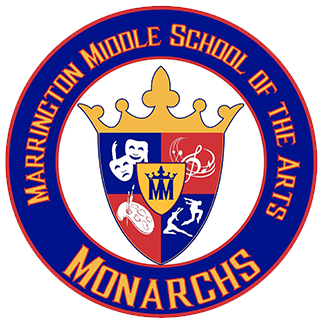About 85 percent of textile waste ends up in landfills where it occupies unnecessary landfill space.
These were textiles that had the opportunity to be recycled but were not.
The reason they do not get recycled is because of a lack of a convenient place to donate textiles.
Residents might notice bright green bins on the property of some schools in Berkeley County School District, provided by a franchise called Clothes Bins, where families can actually recycle old textiles.
The result is threefold with Clothes Bins: textiles get reused as inventory at local businesses, the recycling efforts actually raise money for BCSD schools, and the overall initiative produces a greener option for what residents can do with old clothes.
Textiles include clothing, outerwear, footwear, undergarments, accessories, handbags and linens – these are all things that can go into the bins.
Chad Boariu, director of marketing and training for Clothes Bin, said the franchise is the first clothing/textile recycling franchise in the nation.
The bins are unlike anything else out there. They are equipped with sensory technology inside the bins that alerts Clothes Bins when they are about to be filled up and need servicing – very similar to a vending machine, he said. This technology is called BLIP – Bin Location Information Program – which monitors each bin and alerts the franchisee whenever a bin approaches its capacity and needs to be serviced.
Clothes Bins is in about 15 states, and there are individual schools as well as full districts that have contracted a bin.
BCSD schools with a bin receive multiple benefits: one is it shows the district believes in a green program, and another is individual schools being able to show the overall impact of recycling as a whole.
“You are able to show how you give back to the community,” Boariu said.
Boariu said Clothes Bins’s biggest takeaway is just from the landfill – “we’re trying to make that smaller,” he said.
The schools get paid per pound of everything recycled in the bin, and that is where the fundraising comes in; they receive seven cents per pound that goes back into the school. The bins can hold 600 pounds, so a school could potentially make about $42 every time the bin reaches capacity.
Schools use the money for different items; some of the money is used as “cushion” money while others may go toward the school’s PTO (see the full list of schools with a bin below).
The clothes provided into the Clothes Bins go on to provide inventory for local thrift stores – which is where the recycling part comes in.
“Our biggest thing is there’s always another use,” Boariu said. “Once it goes into a landfill, that’s it.”
Many of BCSD’s schools fall into the territory of Mary Anna Lewis, owner of Lowcountry Textile Recycling. A majority of the schools within the territory were offered a bin, and the first set of bins were set up in May 2019.
Lewis stressed that these clothes are recycled to help local businesses.
“It’s recycling. It’s (being) stewards of the community, it’s fundraising for the schools,” she said.
Boariu and Lewis said they are not discouraging residents from donating used clothes to charities of their choice, but the Clothes Bins model is one that results in a direct effect on the students and administration in that particular school.
A lot of the clothes collected also go to impoverished areas of other countries, like the Dominican Republican and Uganda, where locals can sell the items in their own markets.
“It’s going to third-world countries to marketplace vendors who are feeding their families off of reselling this stuff,” Lewis said.
Clothes Bins has also previously gone into schools to promote the educational aspect of it to students, to show them how they can create business partnerships to help the earth and also provide jobs for families.
BCSD schools use the funds they receive for different items. Hanahan High Principal Tom Gallus said his school puts it in its miscellaneous activity account and use it for supplies for staff and students.
“If there is a student in need, we will use this account to supply them with supplies,” he said.
Whitesville Elementary Principal Katie Taie said her school has been very happy with Clothes Bins. The school uses the funds to supplement field trip costs for parents, and for providing arts performances and enrichment activities for students. The PTO receives the funds and then provides financial support for those experiences.
Whitesville reminds parents through social media and Blackboard to “clean out” their closets when school administration notices upcoming teacher requests.
“Clothes Bin has benefited our school the most by allowing us to decrease the amount of money that we ask parents to spend for additional activities,” Taie said. “Over the past couple of years, we saw a substantial increase in the cost of buses for field experiences and needed to find a way to supplement that burden for our parents.”
Sangaree Elementary Principal Tara Baker said the school has raised a little less than $100 and all funds right now are in the school’s business partner account. She plans to put out a blurb to remind families to provide textiles if they can.
“We would love to raise more (money) to purchase additional personalized learning materials,” she said.
Schools with a bin
Berkeley Elementary
Berkeley High
Berkeley Middle
Boulder Bluff Elementary
Bowens Corner Elementary
Cane Bay Elementary
Cane Bay High
Cane Bay Middle
College Park Elementary
College Park Middle
Foxbank Elementary
Goose Creek Elementary
Goose Creek High
Hanahan High
Hanahan Middle
Nexton Elementary
Philip Simmons Elementary
Philip Simmons High
Philip Simmons Middle
Sangaree Elementary
Sangaree Middle
Westview Elementary
Whitesville Elementary

